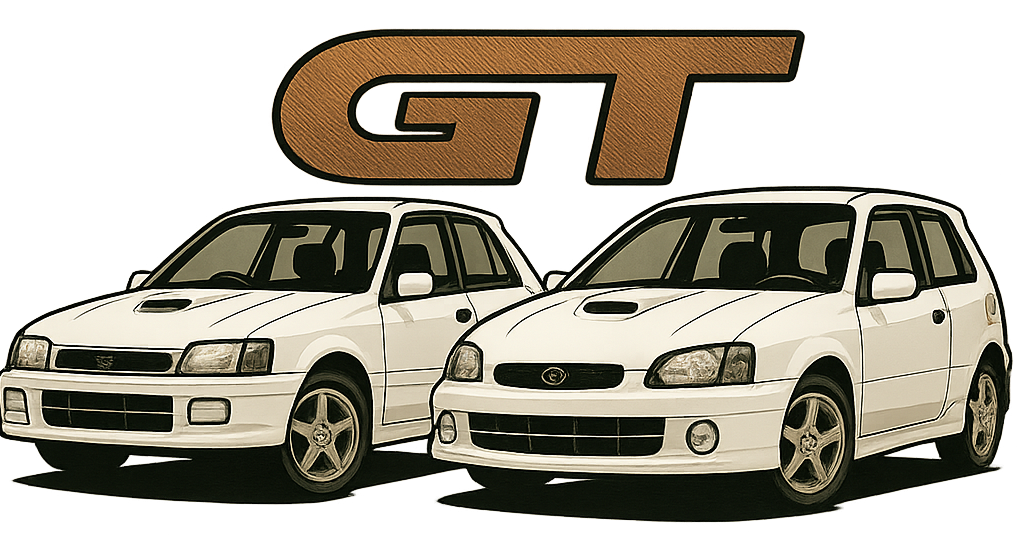A common problem if you run an engine un-tuned is detonation(combustion before the piston is at Top dead center, caused by timing being too far advanced for the engine). Detonation causes a shockwave throughout the cylinder and the pressure escapes through the weakest point, which in the stock E-series engines is the piston's "ring lands" and breaks them. When you take the engine apart, you will only see a few tiny cracks on the side of the piston between the piston rings, but behind that wall, those cracks are connected, exposing the crankcase to the full onslaught of the cylinders pressure, which is going though tiny holes in the piston's lower oiling ringland. This can allow your fuel, and combustion gasses to enter your oil and break it down extremely fast, but no worries, as you will burn oil faster than the gasses can deteriorate it. The symptoms of this are:
1: a rough idle, due to a cylinder misfiring.
2: turbo oil seals being damaged due to excessive oil pressure
3: oil coming out of your breather or catchcan filling up very fast
4: oil vapors or smoke coming out of your breather, pcv valve, or any hole in your valve cover.
5: exhaust sounds vaguely like a boxer engine.
6: very low compression on one or more cylinders(190,190,190,120, or something like that)
This video and these pictures will show you what to look for and how to diagnose these symptoms.
here are the pictures
hairline cracks:
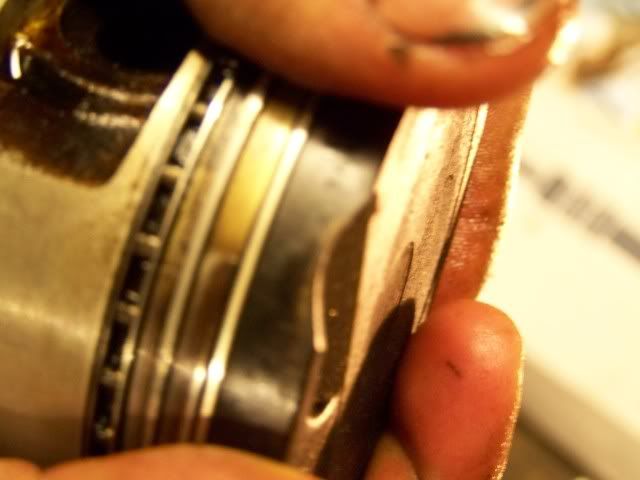
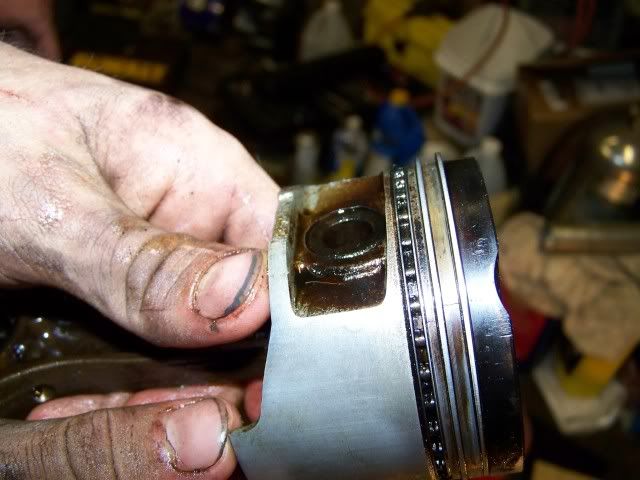
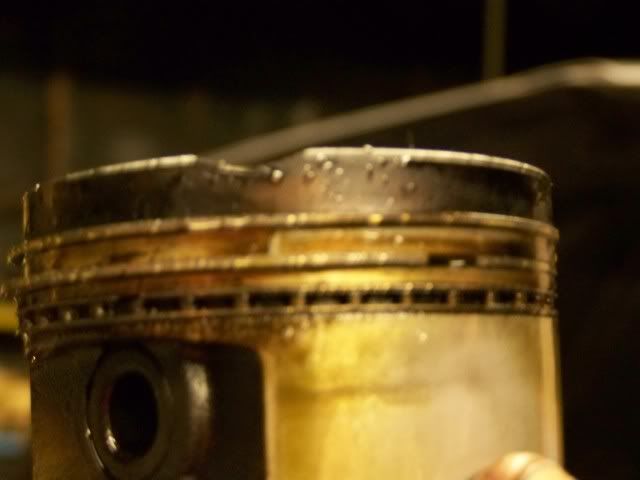
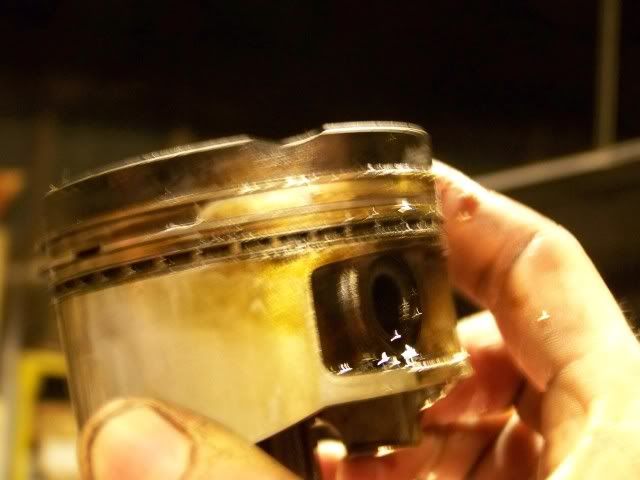
and once you remove the piston rings, you will find out that the cracks are connected.
this is what you will find.
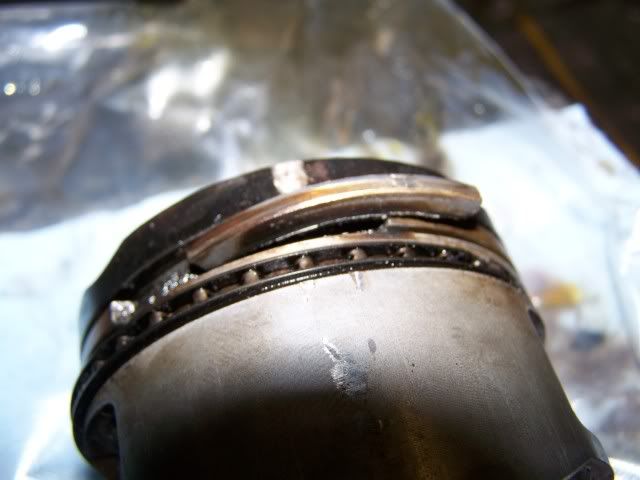
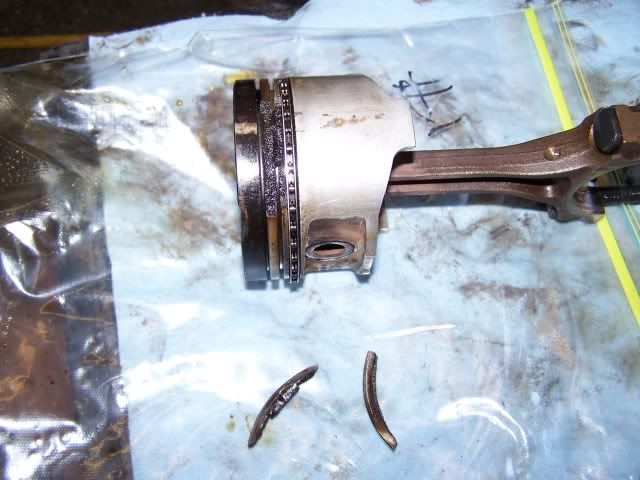
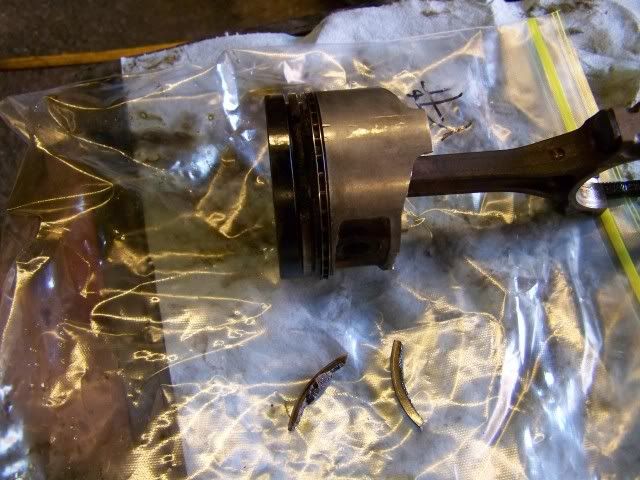
You can slightly see the oiling holes I mentioned they are only about 1mm in diameter each
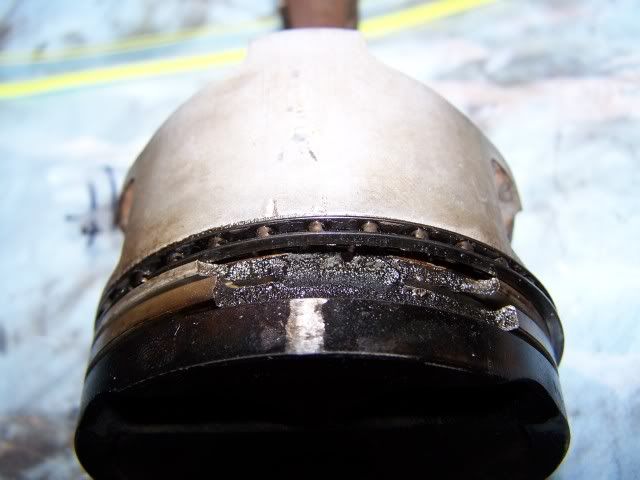
and the video. Excuse the squeaking, the radiator squakes due to a loose mount, but is being replaced while the engine is out.
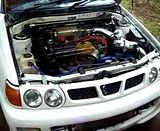
Well I hope that maybe someone is able to learn from this post, and that nobody ever has to deal with this problem.
1: a rough idle, due to a cylinder misfiring.
2: turbo oil seals being damaged due to excessive oil pressure
3: oil coming out of your breather or catchcan filling up very fast
4: oil vapors or smoke coming out of your breather, pcv valve, or any hole in your valve cover.
5: exhaust sounds vaguely like a boxer engine.
6: very low compression on one or more cylinders(190,190,190,120, or something like that)
This video and these pictures will show you what to look for and how to diagnose these symptoms.
here are the pictures
hairline cracks:




and once you remove the piston rings, you will find out that the cracks are connected.
this is what you will find.



You can slightly see the oiling holes I mentioned they are only about 1mm in diameter each

and the video. Excuse the squeaking, the radiator squakes due to a loose mount, but is being replaced while the engine is out.

Well I hope that maybe someone is able to learn from this post, and that nobody ever has to deal with this problem.
